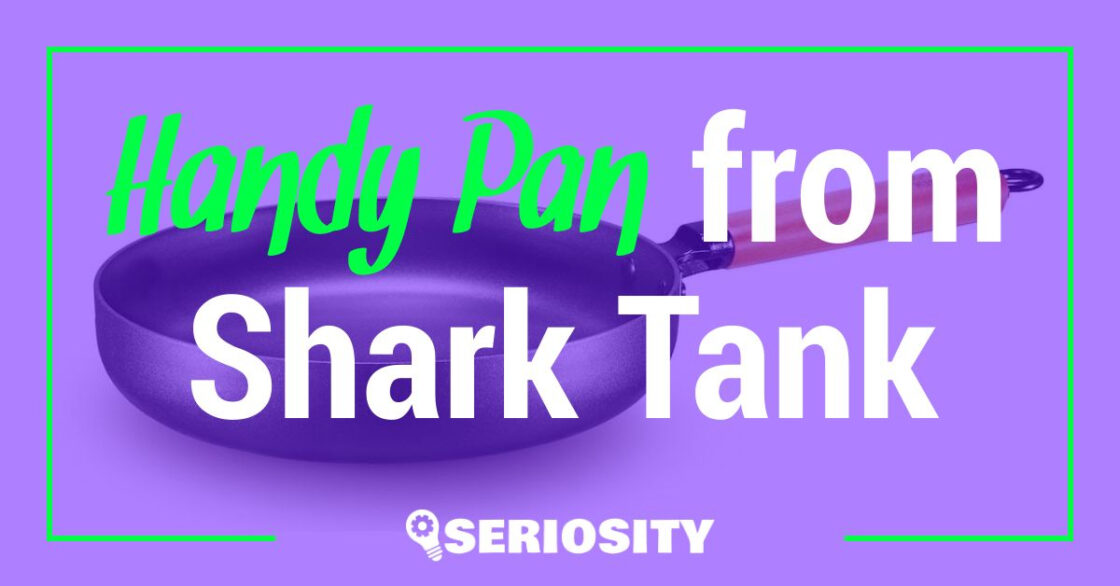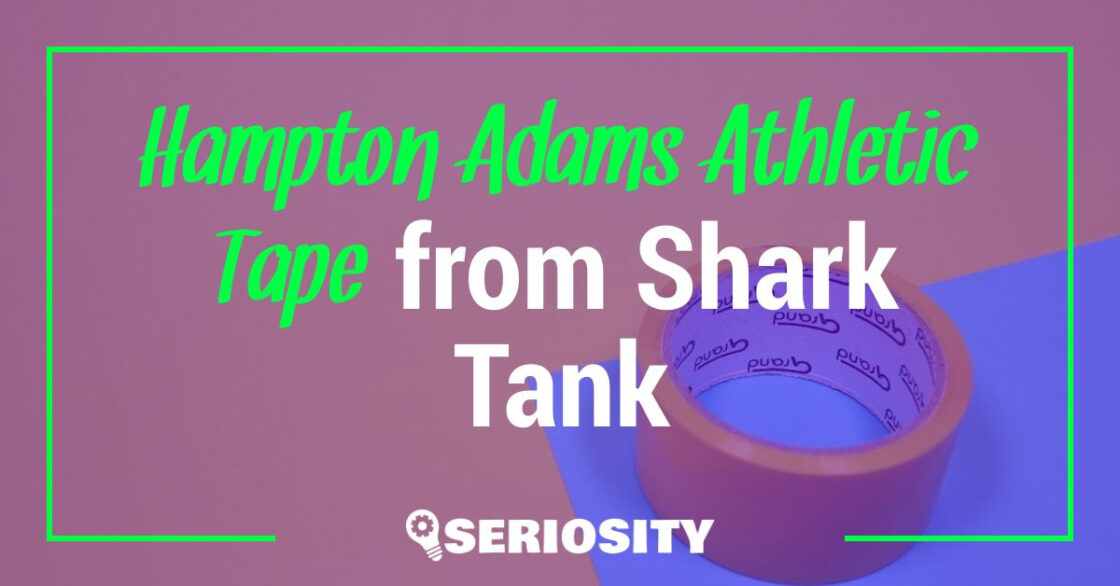Entrepreneurs and long-time dancers Brianne Zborowski and Kaycee Jones appeared on Shark Tank season 13 to catch a Shark for their compression socks business, Apolla. The duo was all too familiar with chronic discomfort and pain and had utilized their knowledge and expertise to help everyone, from dancers and performers to laypeople, walk a little taller and carefree.
They asked the Sharks for a $300,000 investment for 15% equity stakes, and the Sharks were excited to debate numbers.
What Is Apolla?
Apolla is a compression socks business targeted at performers, dancers, and everyone with foot pain and chronic discomfort. The socks come in six different colors and designs and are made from nylon and polyester. Each Apolla pair is supplied with energy absorption padding, arch and ankle support, and another padding for the ankle ball. Despite the unique design, the sock doesn’t restrict motion and distributes weight equally on the sole.
Best friends Brianne Zborowski and Kaycee Jones introduced themselves on the set of Shark Tank season 13 as the proud owners of Apollo, a compression socks business. Kaycee opened the pitch by revealing that their product can help 75% of Americans suffering from foot pain by providing ankle stability, arch support, and energy absorption. Additionally, the socks enable targeted compression and feel like a warm hug on your feet. Kaycee boasted about the durable and cozy material of the socks and how it helps relieve fatigue, pain, and swelling. The duo ended their pitch by asking the Sharks if they were ready to make a mark in the health and wellness community one step at a time.
The Sharks were psyched about trying the samples and were surprised to feel the difference immediately. Lori and Robert went jumping around the room, enjoying the comfort and relief of Apollo. Kaycee revealed that the energy absorption pad sewed in the heel of the Apolo socks has three popular studies proving their efficacy concerning force reduction.
Guest Shark Emma Grede wanted to know about the origins of their business and how their best friends stumbled upon the technology. Kaycee announced that Apollo was created for the toughest sport in the world, i.e., dancers, citing that they have double the injury rate as footballers from knee down. She came up with the idea to use high targeted compression to fashion elastic support, reducing the risk of 65% of dance injuries.
Her knowledge about dance-related injuries intrigued Robert, and he asked if she had a background in dancing. Kaycee replied that she had done masters in Kinesiology, was a registered yoga teacher, a personal trainer, and a national certified Conditioning & Strength Specialist. Kaycee shared that she was still struggling with chronic pains and knows dancing as a culture riddled with injuries. Emma prompted Brianne about her background, to which she replied that she had also been a lifelong dancer and had even performed professionally.
Lori revealed that she had also been a dancer and intimately knows the profession’s challenges. She had surgeries on both her toes and has tried everything to relieve the lingering pain, but nothing works, yet she feels considerable comfort around her ankles, sole, and heel with Apollo. She explained to her colleagues how the padding at the front of the sole was good for women wearing heels, and the compression in the middle was a perfect built-in arch support that distributed tension in the foot equally. Kaycee supplied that the built-in arch support was patented, adding to their two utility and one design patent. The duo had consulted with vascular surgeons, PTs, and podiatrists to design and patent their socks.
Kevin jumped in and told the duo he accepts the utility of their product, but what about the sales? Brianne answered that they have sold 4.1 million worth of products since its launch in August 2016. They had made $800,000 in 2021 at the time of taping and were projecting to make the same amount by the end of the year with a return rate of 2%. As Kevin continued grilling, Brianne elaborated that 85% of Apolla sales were direct-to-consumer, and they were looking to break the 1 million sales mark again.
Kaycee explained that they had to modify their five-year business plan when the pandemic hit to market their product to non-dancers. They changed their packaging, rebranded their website and product to appeal to a larger audience, and relaunched in one month. The price jump didn’t raise any complaints, so they secured a 20% leeway in their gross margin with a 52% return customer rate. The retail price for one pair of Apolla socks shocked the Sharks, inciting loud protests from Emma, Robert, and Mark.
Robert and Mark wanted to know where they were spending their money, and Brianne replied that most of it went to marketing and advertising. While the Sharks still discussed the outrageous retail prices, Lori came in for the duo’s rescue, telling them that the Apolla socks were no ordinary socks.
Kevin pulled out of the deal, reasoning that he was not a suitable Shark for the business.
Mark failed to understand why a product as useful as theirs wasn’t going viral. So, despite his dancing background, he didn’t want to bank on that viral fame, so he was out.
Robert congratulated them on their sales but had the same reservations as Mark. Kaycee told him that Apolla was worn by Emmy and Tony-winning performers and was famous in the dance community, yet Robert didn’t see the product blowing up anytime soon, so he was out.
Emma pointed out that despite being in the business for more than five years, their business was not growing as fast as it should. She further added that she didn’t think she would be passionate about the company, so she was out.
Kaycee turned to the last Shark in the tank, explaining that they were indeed growing and had closed Q2 at a hundred percent average year-over-year growth. Lori applauded the duo for being sharp and focused and even convincing her to wear their socks. She was sold on their utility and comfort and knew she could help them grow, but a lot needed to be rectified. So, she offered them $300,000 for 25% equity stakes, Brianne countered with 20%, but Lori refused to budge.
In the end, the duo agreed, closing the deal with Lori for a $300,000 investment for %25 equity stakes.
After their appearance on Shark Tank season 13, the duo sold out everything in their inventory and had to cut back on orders. Until mid-2022, the deal with Lori had not closed, and there was still a backlog in orders. Still, the founders of Apolla hope to accelerate production and cover their losses by the end of 2022.
Our Review of Apolla
Apolla definitely has a strong presence in the dance community, with it being the first choice of award-winning performers. Yet, the manufacturing delays and order backlog has put a hold on its growth. Also, the fact that the duo has yet to close the deal with Lori is concerning as it had been nearly a year since their pitch. If Kaycee and Brianne fail to solve their inventory problem, they’ll soon be in hot water, that too sockless.
Pros of Apolla
- Targeted compression
- Unrestricted motion
- Equal weight distribution
- Ankle stability
- Arch support
Cons of Apolla
- Expensive
- Limited availability
Who Is Apolla for?
Apolla is for those suffering from foot pain of any kind and prone to swelling and inflammation. Women who wear heels regularly or dancers with challenging routines will appreciate the compression design of Apolla and experience immediate relief after regular use.
Are There Any Alternatives?
Although the founders of Apolla have patented most of their designs, there are still alternatives in the market, offering similar relief, if not exactly the same. We have Dr. Scholl’s compression socks for women, blister guard socks for men, and Balega blister guard and comfort socks going against Apolla head-on.
Our Final Thoughts
We think if the founders of Apolla don’t act quickly, they will lose a lot of profits and opportunities. The Shark Tank effect is still working in their favor, but if they feel to meet the demand, the audience is likely to move on to other alternatives.





